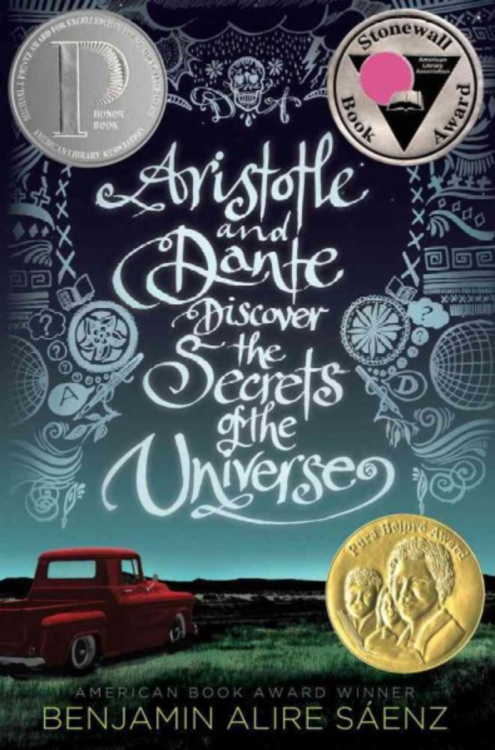 Benjamin Alire Saenz
Benjamin Alire Saenz
Simon & Schuster
|
Feeling sorry for myself was an art. I think a part of me liked doing that….I had all kinds of tragic reasons for feeling sorry for myself. Being fifteen didn’t help. Sometimes I thought that being fifteen was the worst tragedy of all. from Aristotle and Dante Discover the Secrets of the Universe |
Re-discovering secrets of the universe we once knew
It’s been pointed out to me that I have never reviewed a book of poetry or a Young Adult novel in this column. I really don’t feel qualified to review poetry. But I suppose I’m qualified to review YA literature since I was once myself an adolescent, though not very good at it.
Aristotle and Dante Discover the Secrets of the Universe received a slew of awards when it was published in 2012. The story of two Mexican-American boys living in El Paso, it tackles a number of contemporary issues with great humor, pathos and understanding.
Aristotle (Ari) Mendoza, who narrates, has a darker view of the world, weighted down by his fifteen year old existence and carrying what the Spanish philosopher Unamuno called “the tragic sense of life.”
He’s at that age when nothing fits, including one’s body—perhaps especially one’s body—and speaks for many teens trying to figure out who they are as they determine who they are to become: “The problem with my life was that it was someone else’s idea.”
Opposite him is Dante Quintana, ebullient, enthusiastic and embracing life. (“Dante seemed to make himself fit everywhere he went. And me, I always felt that I didn’t belong anywhere.”)
Together, they discover the “secrets of the universe” that is the experience of growing up—learning about friendship, love, sex, and the mystery of why adults do what adults do.
They ponder deeply meaningful and profound questions:
“You think parents ever outgrow sex?”
“I don’t know. I don’t think it’s something you outgrow, is it? What do I know, I’m just waiting to grow into it.”
“Me, too.”
The story moves along in quick, brief chapters—often of only 1 or 2 pages—as they continue the friendship into their late teens.
Eventually, Ari has to come to terms with Dante being gay, and Dante’s feelings for him.
“Can I tell you a secret, Ari?”
“Can I stop you?”
“You don’t like knowing my secrets.”
“Sometimes your secrets scare me.”
Dante laughed. “I wasn’t really kissing Daniel. In my head, I was kissing you.”
I shrugged. “You got to get yourself a new head, Dante.”
He looked a little sad. “Yeah. Guess so.”
Aristotle and Dante is a funny, touching story for adolescents who are trying to figure out the “secrets” of growing up, but also a story for any adult who has ever been an adolescent, no matter how poor he was at it.
This review first appeared in The Columbia River Reader (February 15-March 14, 2015.) Reprinted with permission.



